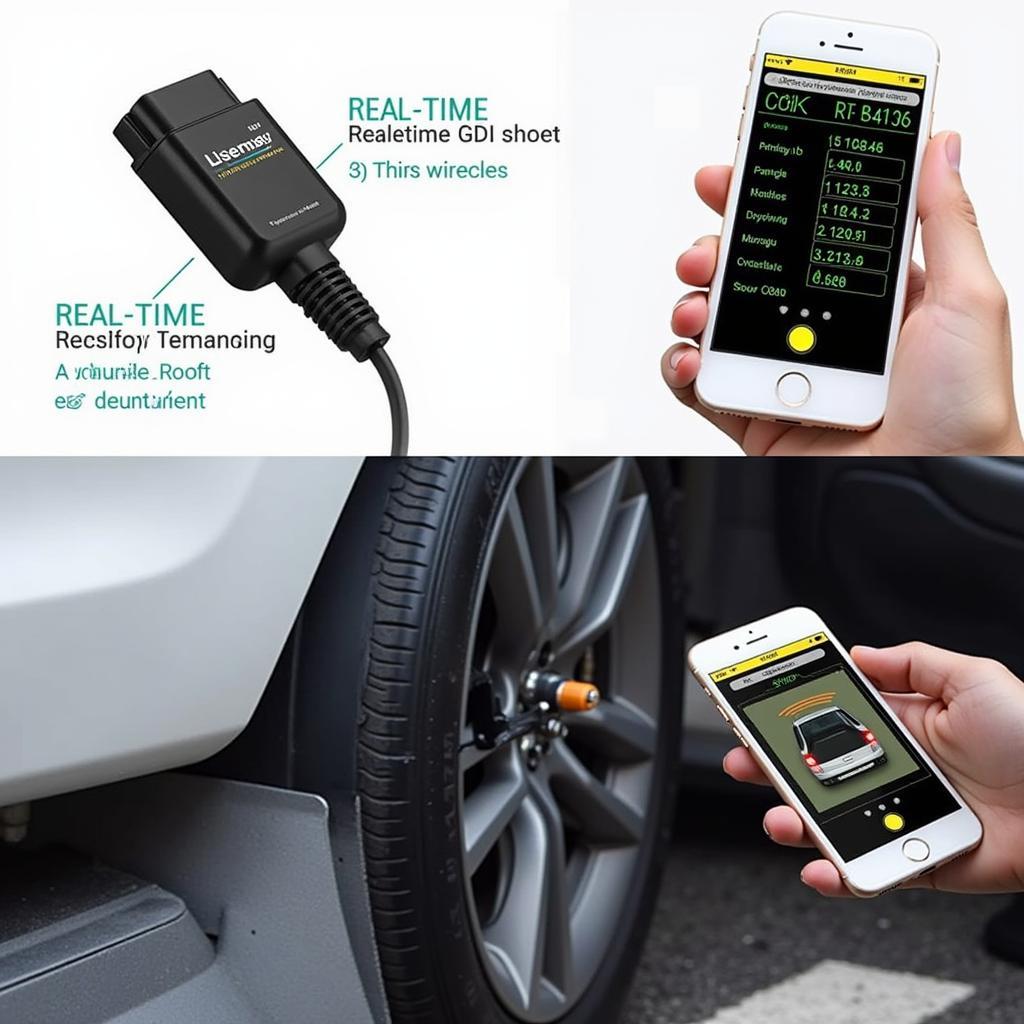Car diagnostic tools are essential for anyone who owns, maintains, or repairs vehicles. These powerful devices empower mechanics and car enthusiasts alike to pinpoint issues quickly, saving valuable time and money. From simple code readers to advanced scan tools, understanding the landscape of car diagnostic tools is crucial for effective vehicle troubleshooting.
Types of Car Diagnostic Tools: From Basic to Professional
Car diagnostic tools come in various forms, each catering to different needs and skill levels. Choosing the right tool depends on your specific requirements and budget.
Code Readers: Entry-Level Diagnostics
Code readers are the most basic type of car diagnostic tool. They retrieve diagnostic trouble codes (DTCs) stored in your vehicle’s onboard computer. These codes indicate potential problems within the vehicle’s systems. While helpful for identifying the general area of concern, code readers often lack the depth of information provided by more advanced tools.
OBD-II Scanners: A Step Up in Functionality
OBD-II scanners offer more comprehensive diagnostic capabilities compared to basic code readers. They can not only read and clear DTCs but also access live data streams from various sensors. This real-time information allows you to monitor the performance of different systems, such as engine, transmission, and emissions.
Professional Scan Tools: The Powerhouse of Diagnostics
Professional scan tools are the top-tier option for serious mechanics and automotive professionals. These tools provide advanced functionalities, including bi-directional control, which allows you to activate specific components for testing. They also offer access to manufacturer-specific codes and data, enabling in-depth diagnostics for specific vehicle makes and models.
Choosing the Right Car Diagnostic Tool: Factors to Consider
Selecting the appropriate car diagnostic tool can be overwhelming with the numerous options available. Consider these key factors to make an informed decision:
- Your Skill Level: Are you a DIY enthusiast or a professional mechanic?
- Vehicle Compatibility: Ensure the tool supports your vehicle’s make and model.
- Budget: Prices range from affordable code readers to high-end professional scanners.
- Required Functionality: Do you need basic code reading or advanced bi-directional control?
Understanding Diagnostic Trouble Codes (DTCs)
DTCs are the foundation of car diagnostics. These alphanumeric codes provide clues about potential malfunctions within various vehicle systems. Learning to interpret these codes is essential for effective troubleshooting.
Benefits of Using Car Diagnostic Tools
Utilizing car diagnostic tools offers numerous advantages:
- Faster Diagnostics: Quickly pinpoint the source of vehicle problems.
- Cost Savings: Avoid unnecessary repairs by accurately identifying issues.
- Improved Vehicle Performance: Optimize engine performance and fuel efficiency.
- Enhanced Safety: Address potential safety concerns promptly.
- Empowerment: Take control of your vehicle’s maintenance and repair.
What are the most common car diagnostic tools?
Some of the most common car diagnostic tools include OBD-II scanners, code readers, and professional scan tools. Each tool offers different functionalities and caters to varying levels of expertise.
Future Trends in Car Diagnostics
The field of car diagnostics is constantly evolving. Emerging technologies are shaping the future of vehicle troubleshooting, including:
- Wireless Diagnostics: Access vehicle data remotely through smartphones and tablets.
- Cloud-Based Diagnostics: Store and analyze vehicle data in the cloud for enhanced diagnostics.
- Artificial Intelligence (AI): Utilize AI-powered algorithms to predict potential failures and optimize maintenance schedules.
“Investing in a reliable car diagnostic tool is an investment in your vehicle’s health and longevity,” says John Smith, Senior Automotive Engineer at Acme Automotive Solutions. “It empowers you to take proactive steps in maintaining your car and avoiding costly repairs down the road.”
 Wireless car diagnostic tool connected to a smartphone displaying vehicle data
Wireless car diagnostic tool connected to a smartphone displaying vehicle data
In conclusion, car diagnostic tools are invaluable assets for anyone involved in vehicle maintenance and repair. From simple code readers to advanced professional scanners, choosing the right tool can significantly enhance your ability to diagnose and resolve vehicle issues efficiently. Investing in the right car diagnostic tool is an investment in your vehicle’s long-term health and performance.
FAQ
- What is the difference between a code reader and a scan tool? Code readers primarily retrieve DTCs, while scan tools offer more advanced functions like live data streaming and bi-directional control.
- Are car diagnostic tools compatible with all vehicles? Ensure compatibility with your vehicle’s make, model, and year before purchasing a tool.
- How do I interpret DTC codes? Refer to a reliable DTC database or consult a qualified mechanic for accurate interpretation.
- Can I use a car diagnostic tool to clear check engine lights? Yes, most car diagnostic tools allow you to clear DTCs and reset the check engine light.
- What are some popular brands of car diagnostic tools? Several reputable brands offer high-quality diagnostic tools, catering to different needs and budgets.
Need help with car diagnostics? Contact us via WhatsApp: +1(641)206-8880, Email: [email protected] or visit us at 910 Cedar Lane, Chicago, IL 60605, USA. Our 24/7 customer support team is ready to assist you.

Leave a Reply